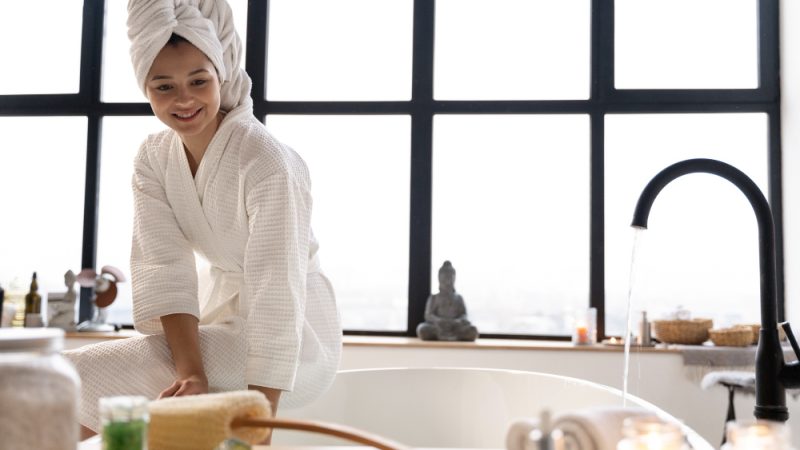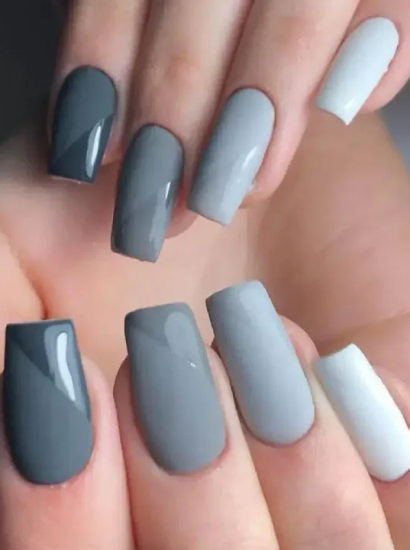There’s nothing quite like sinking into a warm, relaxing bath after a long day. For many, a long bath is the ultimate form of self-care—a quiet moment to unwind, de-stress, and rejuvenate. But beyond the soothing comfort it provides, a long bath offers surprising health benefits you may not have considered. From improving circulation to enhancing mental health, this simple ritual can transform your overall well-being.
1. Stress Relief and Mental Clarity
A warm bath is a scientifically proven way to reduce stress. Immersing yourself in water helps lower cortisol levels—the stress hormone—and encourages the release of endorphins, the body’s natural mood enhancers. Spending just 20–30 minutes in a long bath can mimic the relaxation benefits of meditation, giving your mind a break from daily worries. It’s no wonder many people describe baths as therapy in liquid form.
2. Improved Blood Circulation
When you soak in warm water, your blood vessels dilate, promoting better blood flow throughout the body. This increased circulation helps deliver oxygen and nutrients more effectively to tissues and muscles, supporting healing and relaxation. For individuals with mild circulation issues or cold extremities, a long bath can be particularly beneficial in improving warmth and comfort.
3. Muscle and Joint Relaxation
Whether you’re an athlete or someone who spends long hours sitting at a desk, muscle stiffness and joint tension are common issues. A long bath acts like a natural muscle relaxant. The warmth of the water eases tight muscles, reduces stiffness, and provides relief from mild aches. Adding Epsom salts to your bath can further enhance this benefit by delivering magnesium to the body, which is known to reduce inflammation and soreness.
4. Detoxification Through Sweating
Sweating isn’t just for workouts—it’s also an important part of detoxification. A hot bath raises your body temperature, encouraging gentle sweating that helps release toxins through your skin. Unlike intense exercise, this form of sweating is more relaxing and less stressful on the body. Regular long baths can support skin clarity and leave you feeling lighter and refreshed.
5. Better Sleep Quality
If you struggle with insomnia or restless nights, a long bath before bed might be the solution you’re looking for. When you step out of a warm bath, your body temperature gradually cools, signaling to your brain that it’s time to sleep. This natural drop in body temperature helps align your circadian rhythm, making it easier to fall asleep and stay asleep. Many sleep experts recommend taking a bath 60–90 minutes before bedtime for maximum effectiveness.
6. Skin Hydration and Nourishment
One often-overlooked benefit of a long bath is its effect on your skin. Warm water opens up pores, allowing for better absorption of skincare products applied afterward. Adding natural oils like coconut, jojoba, or almond oil to your bath can provide deep hydration, leaving your skin soft and nourished. For an added boost, use bath-friendly ingredients like oatmeal or milk to soothe irritation and enhance skin health.
7. Boosted Immune Function
Long baths may even help strengthen your immune system. Studies suggest that raising your body temperature through hot water immersion can mimic the effects of a mild fever, stimulating the production of white blood cells that fight infections. While it’s not a replacement for medical care, regular warm baths may give your body an extra line of defense during flu season.
8. The Role of Aromatherapy in Long Baths
To elevate your bath experience, incorporating aromatherapy can work wonders. Essential oils such as lavender, eucalyptus, and chamomile enhance relaxation, clear sinuses, and uplift mood. Adding a few drops of your favorite essential oil to your bathwater or using bath bombs infused with natural scents can transform your long bath into a spa-like ritual with extra health perks.
9. How to Prepare the Perfect Long Bath
Not all baths are created equal—preparation matters. Here are a few steps to create the ultimate long bath experience:
Set the right temperature: Aim for warm, not scalding hot water, to avoid drying out your skin.
Add bath salts or oils: Enhance relaxation and skin benefits.
Create ambiance: Dim the lights, light candles, or play calming music.
Hydrate: Keep a glass of water nearby to prevent dehydration during a long soak.
Time it right: 20–30 minutes is the sweet spot for reaping benefits without over-drying skin.
10. When to Avoid Long Baths
While long baths are generally safe and beneficial, there are situations where caution is advised. People with certain medical conditions—such as cardiovascular issues, severe eczema, or skin infections—should consult a healthcare professional before indulging in prolonged hot baths. Additionally, avoid water that is too hot, as it may cause dizziness or dehydration. Moderation is key.
Conclusion
A long bath is more than just a self-care luxury—it’s a wellness practice with powerful health benefits. From improving circulation and muscle relaxation to enhancing sleep and boosting immunity, a warm soak can positively impact both body and mind. By preparing your bath thoughtfully and practicing it regularly, you can transform an ordinary routine into a rejuvenating ritual. So the next time you feel stressed, sore, or simply in need of a pick-me-up, remember that your bathtub might be the best wellness tool you already own.
FAQs
1. How long should a long bath last?
A long bath typically lasts between 20–30 minutes. This timeframe allows you to enjoy the health benefits without risking dehydration or skin dryness.
2. Can I take a long bath every day?
Yes, but daily long baths may dry out the skin if proper hydration isn’t maintained. Using bath oils and moisturizing afterward helps keep your skin healthy.
3. Are cold baths better than long warm baths?
Cold baths are great for reducing inflammation and muscle soreness, while long warm baths are better for relaxation, circulation, and sleep. The choice depends on your needs.
4. What can I add to my bath for extra benefits?
Epsom salts, essential oils, oatmeal, milk, and natural oils are popular additions. They enhance relaxation, nourish skin, and provide therapeutic benefits.
5. Can pregnant women take long baths?
Pregnant women can take warm baths, but extremely hot water should be avoided. Always consult with a healthcare provider for safety during pregnancy.
Also read : Foundation Stick: 9 Affordable Choices Under \$20





